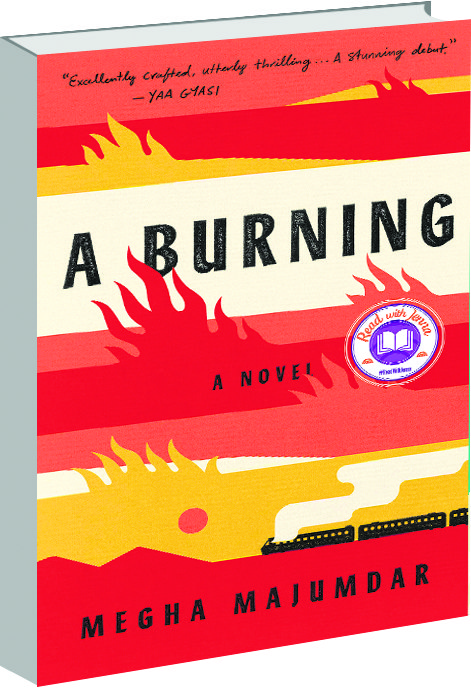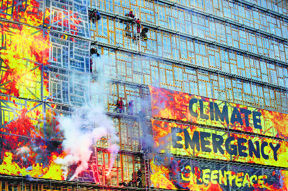A Burning by Megha Majumdar. Penguin Random House. Pages 304. Rs 599
Book Title: A Burning
Author: Megha Majumdar
Roopinder Singh
Jiwan. The story here is all about life — how it is dealt out to those who fall through the cracks, in this case, the protagonist, who is a woman, poor and Muslim, a loving daughter who strives to rebuild her world after being thrown out of a small shanty.
“Then the policemen came to evict us. The company wanted to mine the land on which we lived, rich with coal. Why should the company let some poor people sit and bathe and sleep on top of vast sums of money?” They retaliate with bottles of piss and shit, and the policemen retort with a lathi charge. Her father’s back fractured with a baton carelessly flung his way, his rickshaw vandalised during the operation. All this is not even a footnote in the news.

We see how Jiwan bravely tries to get medical help for her father, with some success, and the family’s endeavour to rebuild their life. Jiwan’s character is flawed. Her maiden attempt at pickpocketing takes a turn for the better when she is enrolled in a school through an NGO. She struggles with the intensity of a dispossessed person attempting to get ahead in life and impresses her PT Sir. She learns English, “the language of progress”. She also teaches Lovely, a transwoman who is training to be an actress.
Jiwan’s smartphone takes her to Facebook and that fatal post about the police inaction after the burning of a train, to which she is a witness. Soon she is arrested, denounced as a terrorist who was chatting online with a handler, etc. She is not like the boys she heard whooping and cheering after visiting a nightclub, even as she pleaded her innocence in the police van after being picked up from home. “The doddering police van meant nothing to those boys. They did not slow down. They were not afraid. Their fathers knew police commissioners and members of the legislature, figures who were capable of making all problems disappear. And me, how would I get out of this? Whom did I know?”
Her parents, PT Sir and Lovely. PT Sir falls for politics wrapped up in the form of Bimala Pal, the populist political leader and, in due course, the new Chief Minister of the state. The slow succumbing to expediency erodes the moral underpinnings of a hitherto fairly upright, if uninspired, educator.
In Majumdar’s hands, the characters’ human dimensions come alive, even as she casts a satirical eye at the processes and functions of the socio-legal system in the country. Her description of various people and the hierarchy of the jail are realistic, although it is difficult to imagine how “her brother” Purnendu Sarkar is allowed to meet her, despite his very Hindu name.
Corruption is the weft in the lives of the characters and the system they face. It is a way of life. It corrodes individuals like PT Sir, who becomes a “witness” in politically expedient cases in which he sees the accused for the first time in court; Lovely, who bravely stands for Jiwan, but abandons the teacher for her own thespian ambitions; Purnendu Sarkar, who is empathetic and puts in much research into his story, but surrenders to an editor who seeks sensationalism.
The entire establishment eco-system — police, courts, media, politicians — is looked at with a searing eye and a sly sense of humour. “We hear that Sonali Khan is being kept under house arrest, which means that she lives, as before, in her own house. Even the meaning of “prison” is different for rich people. Can you blame me for wanting, so much, to be— not even rich, just middle class?”
No, we cannot. Ambition is the wrap woven into the story as Jiwan seeks to better her life through education and a job; PT Sir is lured away from the school into politics; Lovely into acting and so on. Ordinary impulses in regular people, when touched with the corrosiveness of a system that fails to deliver on its promises, become toxic in time.
The story is set in India. It has resonated in the US, where the ugliness of aggressive policing and prosecution and the underlying systemic racial prejudice have all been exposed yet again in the wake of George Floyd killing and the Black Lives Matter protests. The sad truth is that Jiwan could be anyone who falls afoul of the system that stresses on order, even at the cost of justice. Those who face this life know all about it, others like us should at least read the book to better understand the world they, and we, live in.














